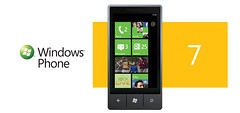Congrats to Skype On Hitting 35 Million Online Users!
March 06, 2012
Congrats to the folks at Skype as they cross over the milestone of having 35 million users online at the same time, just a week after crossing over the 34 million mark! That's certain a great accomplishment and the recent growth is quite interesting.
It's not entirely clear to me the source of the growth, but perhaps it is most attributable to the Windows Phone beta version of Skype they released last week. Any Skype users with Windows Phones (and given that they are part of Microsoft now there are probably a good number just within Microsoft) are now going to have a way to stay online more. Perhaps it's also the new Skype-enabled TVs. Regardless, it's great to learn of the growth.
Of course, on the Mac 5.5 version of Skype I can't see the growth myself as there still seems to be no way to see the number of online users in the Mac client.
As I wrote about way back in November 2010, the Skype 2.8 client used to show the number of online users in the lower right corner of the client:
Now that number is nowhere to be seen. As I noted in that article, with the early 5.0 version for the Mac there was a "/mac users" command you could type in a chat window to get the number, but that command no longer works in the 5.5 client.
So I haven't a clue how we in the Mac world can know for ourselves the number of people online.
UPDATE: It turns out that simply "/users" in any Skype chat on the Mac will give you the number of online users. Here's an example:
[3/6/12 8:24:01 AM] System: There are 32,145,771 Skype users online
Thanks to Jim Courtney for confirming this after a tip from a Skype contact.
UPDATE - 16 June 2014: This "/users" command was apparently removed from the Skype for Mac client sometime in the last two years. It seems the only way to get Skype statistics is from Skype's statistics RSS feed.
Not that it really matters... I mean... I'd far rather see a Skype developer work on giving us the ability to see multiple chat windows simultaneously (like Skype for Windows users can) than to work on a way to display a number that is perhaps only of interest to techies like me. Still, it would be fun to have some way to see it. (And the lack of such a display is probably why I haven't written about milestones like this since back in January 2011 when Skype crossed over 27 million.)
I left a comment asking about this on Skype's blog post, but it hasn't yet been approved. We'll see if it gets posted and if there is an answer.
Regardless of all of that, I'll again say CONGRATULATIONS to the folks at Skype... and I'm looking forward to seeing Skype's continued growth in the months and years ahead.
If you found this post interesting or useful, please consider either:
- following me on Twitter;
- adding me to a circle on Google+;
- subscribing to my email newsletter; or
- subscribing to the RSS feed
If you found this post interesting or useful, please consider either:
- following me on Mastodon;
- following me on Twitter;
- following me on SoundCloud;
- subscribing to my email newsletter; or
- subscribing to the RSS feed

